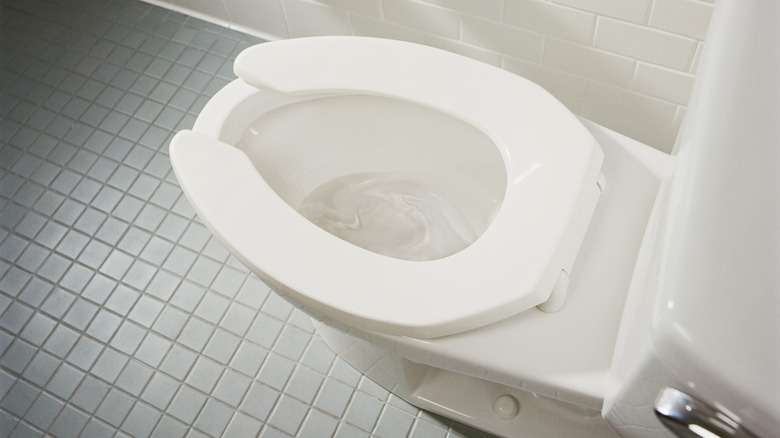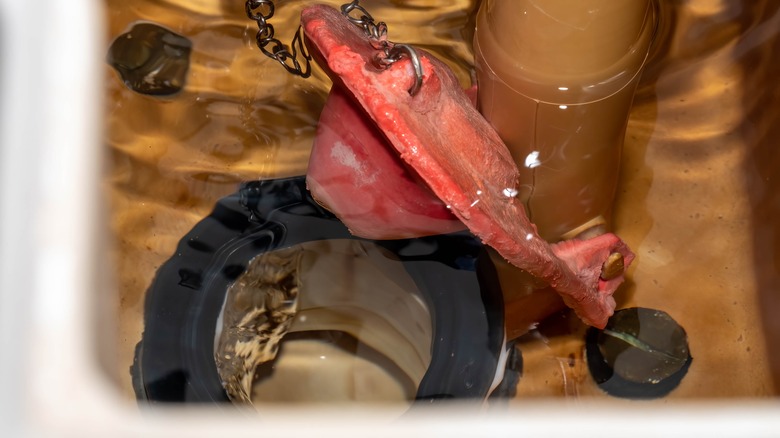Why Your Toilet Refills Sporadically And The Easy Fix You Need To Know
We may receive a commission on purchases made from links.
Do you hear your toilet randomly refilling on its own every now and then? Don't worry — your toilet isn't haunted by a ghost with indigestion. That said, you arguably have a bigger issue on your hands. The reason the toilet starts to refill the tank even without a living human flushing it first is that the water from the tank leaks out. As the water leaves the tank, the toilet does what it's designed to do: The float drops, the fill valve activates, and the water comes rushing in until its surface raises the float once again and the valve gets shut off. There you go — 16th century technology at work, 500 years later. But now that you know the earthly mechanism behind the seemingly paranormal phenomenon, let's turn our attention to the reason your toilet won't stop leaking.
There are two ways a toilet can leak: internally and externally. Internal leaks are usually caused by a faulty or worn-out gasket known industry-wide as the "flapper seal" (or "valve seal"). The flapper seal is an essential part of your toilet that sits at the interface between the flush valve and the tank, so that the water doesn't flow down into the bowl between flushes. As the seal wears off, it loses its ability to keep water from leaking into the bowl. On the other hand, external leaks can stem from a loose bolt connecting the fill valve to the underside of the tank, or from a busted seal at the tank-bowl interface. Below, we'll explain how to deal with both types of leaks to stop your toilet from randomly refilling itself.
How to deal with internal and external toilet leaks
First, determine if the leak is external or internal. External leaks are visible — you'll see water either on the sides of the toilet bowl or pooling around the toilet seat's base. Inspect each part of the toilet seat's exterior carefully. If you see that water is dripping from the underside of the tank, see if you can trace it back to a large bolt — this bolt connects the fill valve to the tank. If the water is indeed coming from this bolt, check to see if it's loose. Upon confirming that the bolt isn't tight enough, shut off water supply to the toilet, drain the tank, and remove the fill valve. Then, clean the inside of the tank and reinsert the fill valve, along with a shank washer, before re-tightening the bolt on the exterior. This should stop the leak. Now, if the water is coming from the place where the bowl meets the tank, the tank-to-bowl gasket has likely failed. You'll need to remove the tank and replace the faulty part. To make sure the job gets done right, call a professional plumber to help you out.
If you've eliminated external leaks as a cause of the sporadic refills, then the issue is likely with the flapper seal inside the tank. Fortunately, replacing a worn-out toilet flapper demands little effort. First, find a replacement flapper that's compatible with your toilet model. For example, this Fluidmaster flapper seal fits American Standard Champion 4 and Eljer Titan 4 models. Once you have the replacement, shut off the water supply to the toilet and flush the tank. Then, slip the old flapper off the flush valve and discard it. Finally, follow the instructions on the package to install the new flapper before turning the water supply on.

